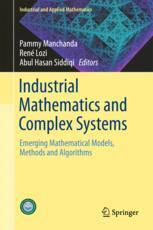Acquisition of Complex Arithmetic Skills and Higher Order Mathematics Concepts Volume 3 Mathematical Cognition and Learning 1st Edition by David Geary, Daniel Berch, Robert Ochsendorf, Kathleen Mann Koepke 0128133682 9780128133682
$50.00 Original price was: $50.00.$25.00Current price is: $25.00.
Acquisition of Complex Arithmetic Skills and Higher Order Mathematics Concepts Volume 3 Mathematical Cognition and Learning 1st Edition by David C. Geary, Daniel B. Berch, Robert Ochsendorf, Kathleen Mann Koepke – Ebook PDF Instant Download/DeliveryISBN: 0128133682, 9780128133682
Full download Acquisition of Complex Arithmetic Skills and Higher Order Mathematics Concepts Volume 3 Mathematical Cognition and Learning 1st Edition after payment.

Product details:
ISBN-10 : 0128133682
ISBN-13 : 9780128133682
Author: David C. Geary, Daniel B. Berch, Robert Ochsendorf, Kathleen Mann Koepke
Acquisition of Complex Arithmetic Skills and Higher-Order Mathematics Concepts focuses on typical and atypical learning of complex arithmetic skills and higher-order math concepts. As part of the series Mathematical Cognition and Learning, this volume covers recent advances in the understanding of children’s developing competencies with whole-number arithmetic, fractions, and rational numbers. Each chapter covers these topics from multiple perspectives, including genetic disorders, cognition, instruction, and neural networks.
Acquisition of Complex Arithmetic Skills and Higher Order Mathematics Concepts Volume 3 Mathematical Cognition and Learning 1st Table of contents:
Chapter 1: Insights from Cognitive Science on Mathematical Learning
Abstract
On the nature of theories and models in cognitive psychology
Methodological considerations
Challenges for instruction
Conclusions and future directions
Part I: Complex Arithmetic Processing
Chapter 2: The Understanding of Additive and Multiplicative Arithmetic Concepts
Abstract
Introduction
What is conceptual knowledge of arithmetic?
The importance of conceptual knowledge
A brief history of research on conceptual knowledge
The importance of multiplicative concepts and the state of current research
Additive versus multiplicative concepts
The inversion concept
The associativity concept
Are additive and multiplicative concepts the same?
Individual differences and factors in the use of conceptually-based shortcuts
Individual differences
Factors relating to conceptually-based shortcut use
Conclusions and future directions
Chapter 3: Arithmetic Word Problem Solving: The Role of Prior Knowledge
Abstract
Introduction
The role of daily life experience in solving arithmetic word problems
The role of stereotypic representations about problem solving in school
The role of problem schemata stored in long-term memory
The use of schemata versus situation-based models
How can we help students
Conclusions and future directions
Chapter 4: Neurodevelopmental Disorders as Model Systems for Understanding Typical and Atypical Mathematical Development
Abstract
Introduction
Spina bifida as a model system for understanding mathematical learning disabilities
Longitudinal approaches to the study of mathematical development and disability
Longitudinal studies of mathematical cognition in children with SBM and their typically developing peers
Conclusions and future directions
Acknowledgments
Part II: Rational Number Processing
Chapter 5: The Transition from Natural to Rational Number Knowledge
Abstract
The importance of rational numbers
Rational numbers: a challenge for learners and for mathematics education
The interference of natural number knowledge in rational number tasks
The natural number bias
Theoretical frameworks for studying the natural number bias
Overview of our studies using both conceptual change theory and dual process perspective
Conclusions and future directions
Chapter 6: Fraction Development in Children: Importance of Building Numerical Magnitude Understanding
Abstract
Integrated theory of numerical development
Understanding of fractions involves both conceptual and procedural knowledge
Fraction development in early childhood
Fraction development between third and sixth grade: findings from the delaware longitudinal study
Helping students who struggle with fractions
Acknowledgment
Chapter 7: Numbers as Mathematical Models: Modeling Relations and Magnitudes with Fractions and Decimals
Abstract
Understanding rational numbers
Prior research on magnitude assessment and misconceptions about rational numbers
Using mathematics to model relations
Alignments between rational numbers and quantity types
Connections between rational numbers and other math concepts
Conclusions and future directions
Part III: Algebraic, Geometric, and Trigonometric Concepts
Chapter 8: Understanding Children’s Difficulties with Mathematical Equivalence
Abstract
Introduction
Children’s difficulties with mathematical equivalence problems
Popular accounts of children’s mathematics learning difficulties
The change-resistance account
Conclusions and future directions
Acknowledgments
Chapter 9: Learning and Solving More Complex Problems: The Roles of Working Memory, Updating, and Prior Skills for General Mathematical Achievement and Algebra
Abstract
Introduction
Algebra and earlier mathematics skills
General mathematics achievement, algebra, and relations with domain-general and domain-specific influences
The present study
Conclusions and future directions
Chapter 10: Learning Geometry: the Development of Geometrical Concepts and the Role of Cognitive Processes
Abstract
Classical studies on geometry
Core intuitive principles of geometry
Academic achievement in geometry
The development of geometrical knowledge
Cognitive processes involved in geometry
Educational implications
Conclusions and future directions
Chapter 11: The Unit Circle as a Grounded Conceptual Structure in Precalculus Trigonometry
Abstract
Grounded conceptual structures in mathematical cognition
Preliminary investigations
Preliminary study: observing use and success of the unit circle
Study 2: comparing a unit circle lesson to a rules lesson and baseline knowledge
Challenges in learning the unit circle
Conclusions and future directions
Part IV: Instructional Approaches
Chapter 12: The Power of Comparison in Mathematics Instruction: Experimental Evidence From Classrooms
Abstract
Introduction
Short-term, researcher-led classroom research
Year-long study helping teachers use comparison in algebra I classrooms
Conclusions and future directions
Acknowledgments
Chapter 13: Evidence for Cognitive Science Principles that Impact Learning in Mathematics
Abstract
Introduction
Scaffolding principle
Distributed practice effect
Feedback principle
Worked example principle
Interleaving principle
Abstract and concrete representations principles
Error reflection principle
Analogical comparison principle
Conclusions and future directions
Acknowledgments
People also search for Acquisition of Complex Arithmetic Skills and Higher Order Mathematics Concepts Volume 3 Mathematical Cognition and Learning 1st:
what is skill acquisition theory
what is the associative stage of skill acquisition
what is motor skill acquisition
acquisition skills
arithmetic skills
Tags: Acquisition, Complex Arithmetic, Mathematics Concepts, Mathematical Cognition, Learning, David Geary, Daniel Berch, Robert Ochsendorf, Kathleen Mann Koepke
You may also like…
Linguistics - Linguistics
Second Language Acquisition and Lifelong Learning 1st Edition Singleton
Politics & Philosophy
Science (General)
Metamathematics of First Order Arithmetic 1st Edition Petr Hájek
Education Studies & Teaching - Pre-school & Early Learning
Science (General)
Education Studies & Teaching - School Education & Teaching
Science (General)
Business & Economics - Management & Leadership












